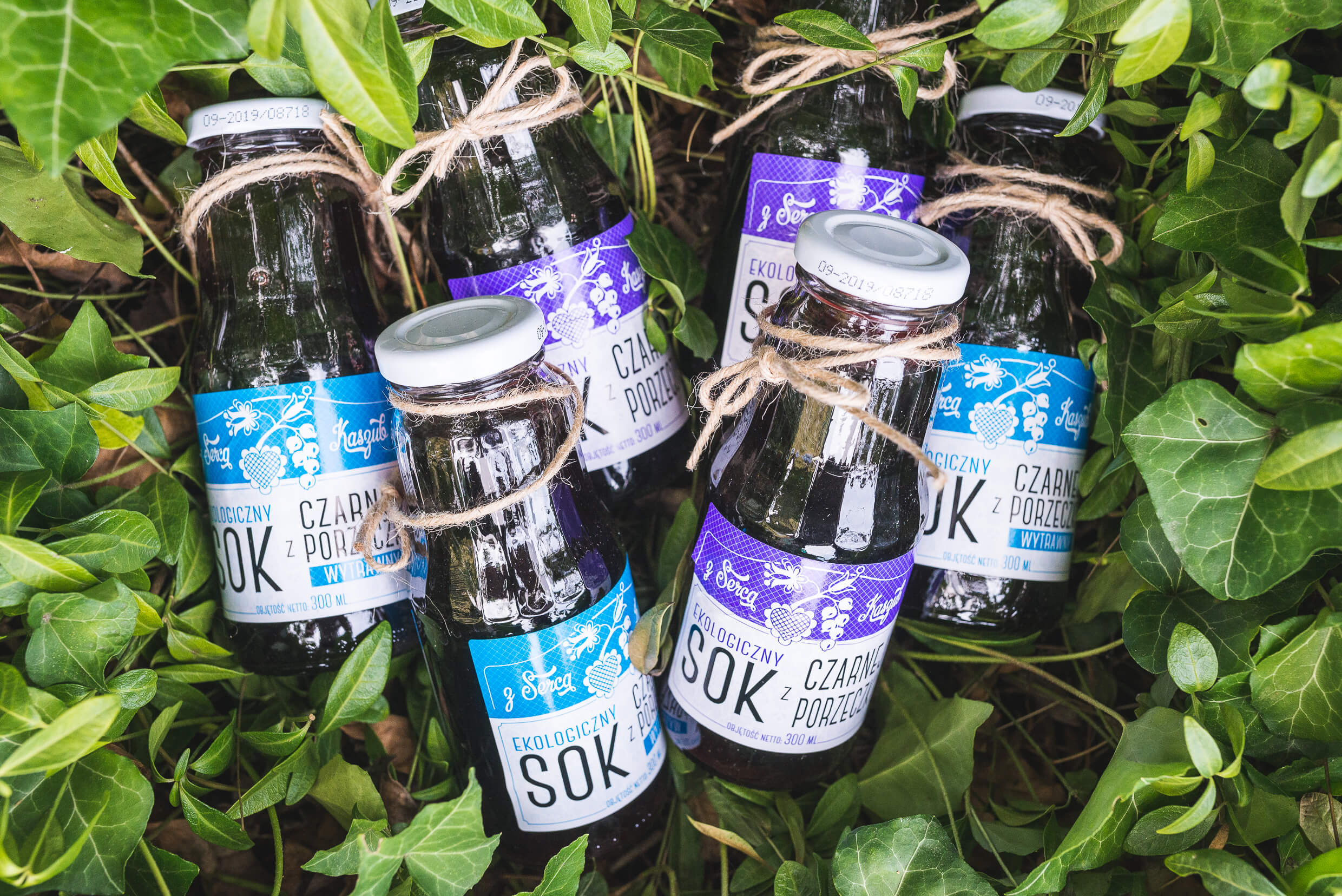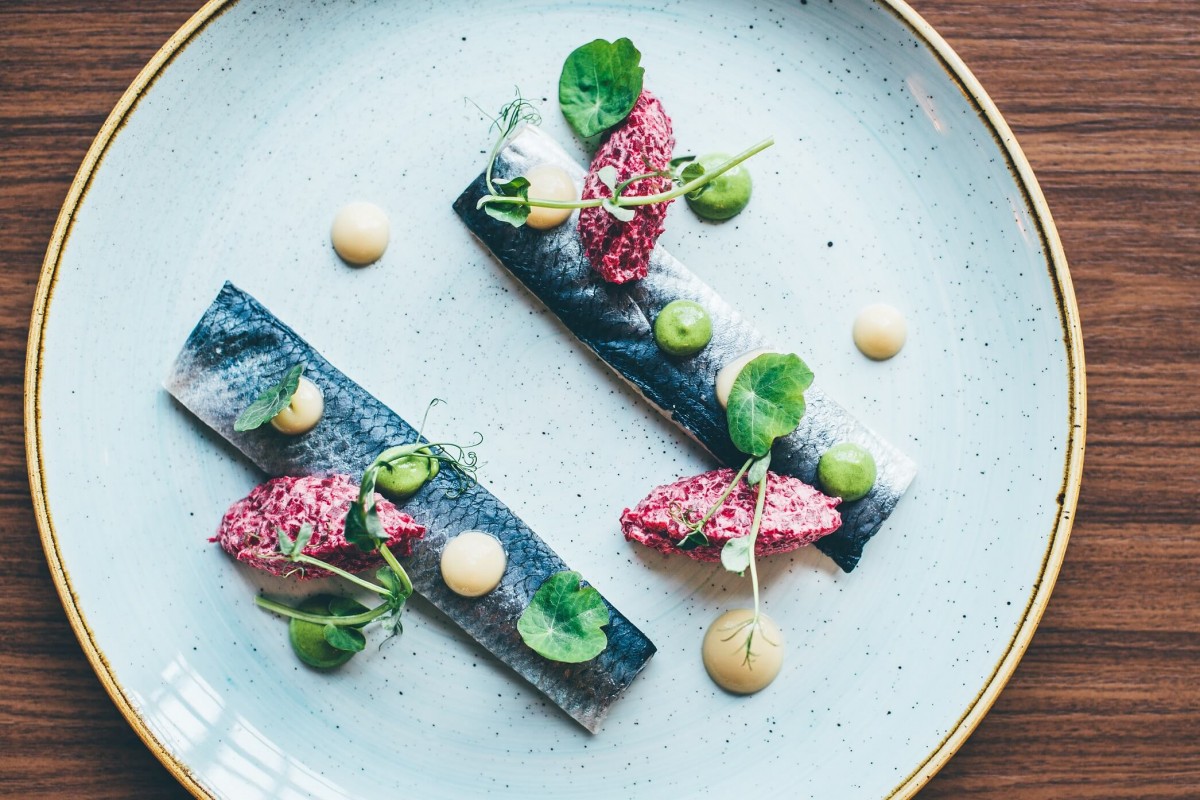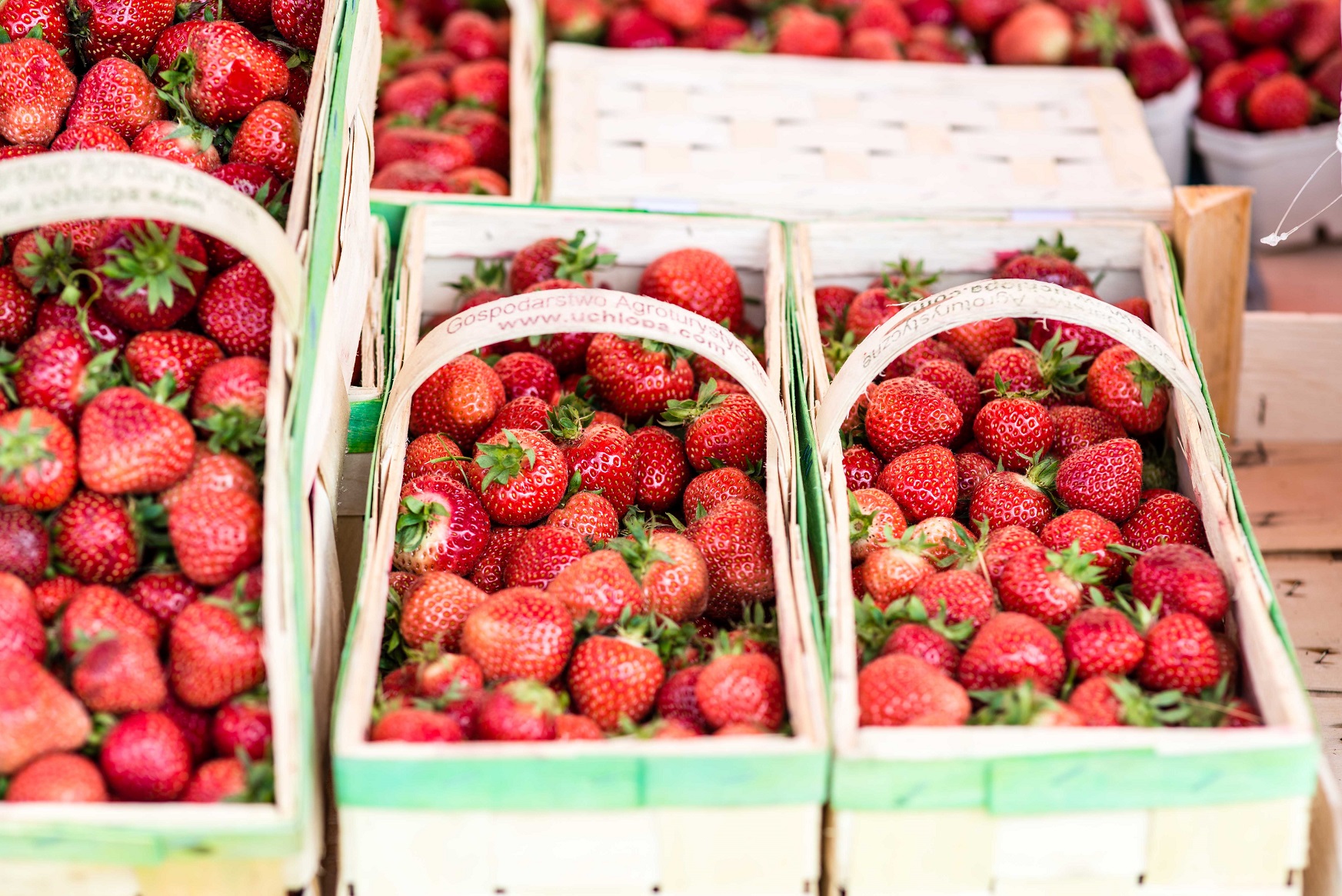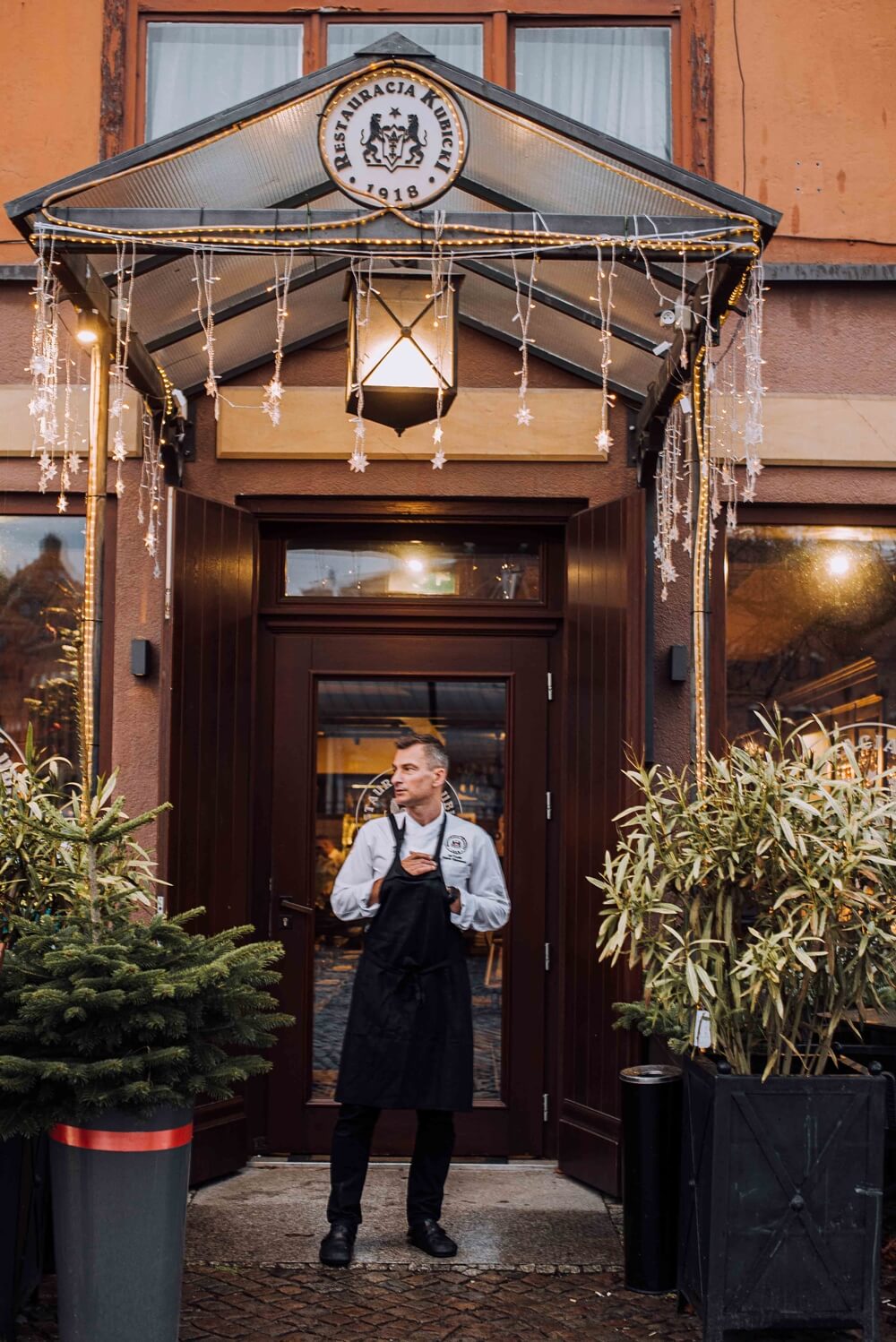There are some priviliged places in Gdańsk that offer an exquisite view from the window. One of them is Gvara, a restaurant in the Main Town of Gdańsk, surrounded by charming old houses, and located in the vicinity of St. Mary’s Basilica.
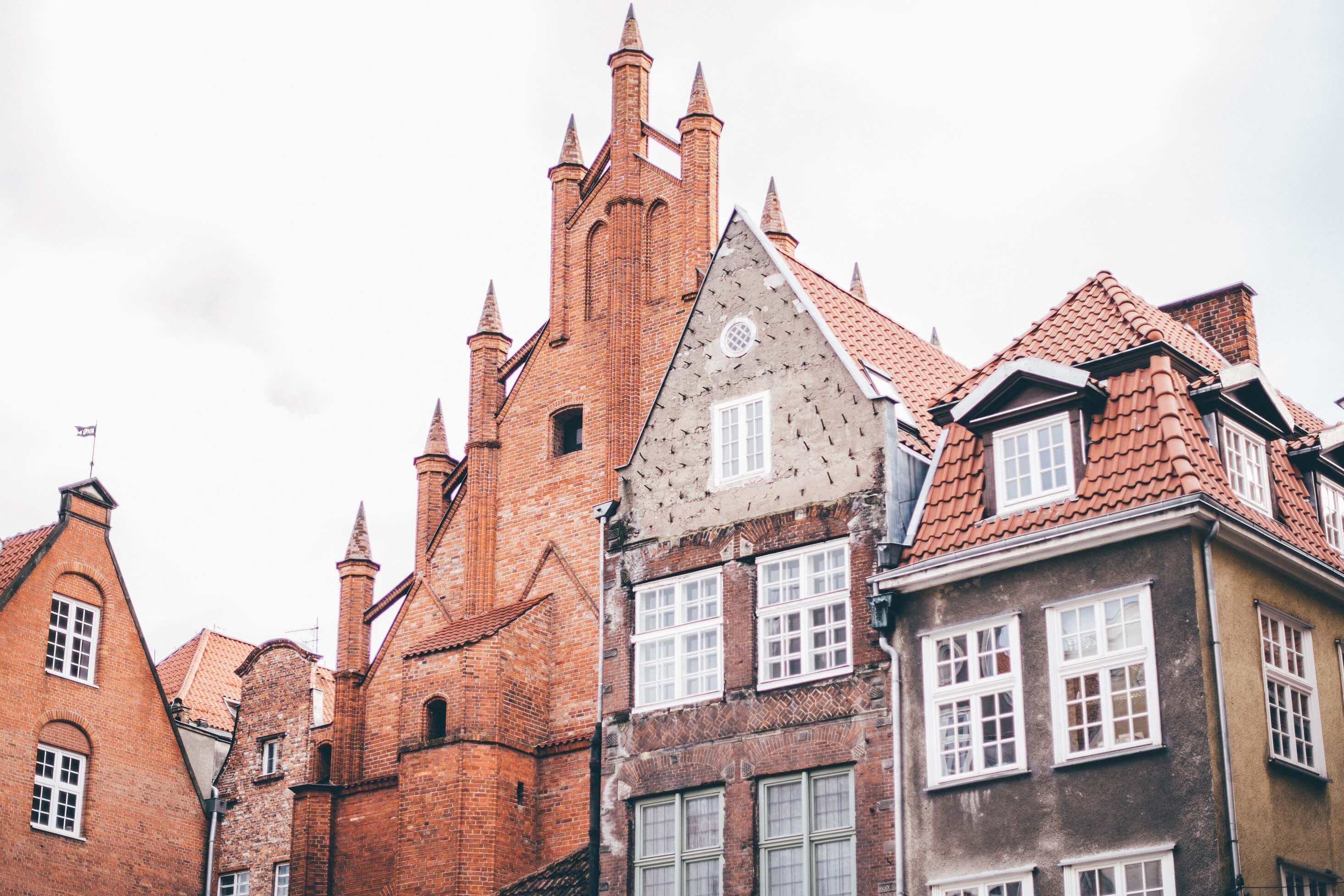
But the views from the windows are not the only advantage of this place, which I find out as soon as I enter the premises, greeted by nice and competent staff. Staff members, from the chef to the waiters, create a warm atmosphere in the restaurant. The name of the restaurant itself refers to the ambiance of the place. The name comes from a Polish adjective that stands for lively.

According to Magdalena Diak, the manager: “the name of the restaurant refers to the bustling atmosphere we are working on here. Gvara is mainly the people who create this place – a great team in the kitchen and waiters passionate about work. Gvara is the staff’s smiles, and their joy, and the atmosphere that we create together with our guests, for example during live music evenings, which take place every Friday and Saturday from 7 till 10 pm. Gvara’s local character is also important.

Piotr Wasilewski, the chef with nearly thirty years of experience, also mentions a good atmosphere in Gvara: “We have created a harmonious and ambitious team in Gvara.” People love to cook here, they have a lot of ideas about how to find new flavors, they experiment and invent new recipes. It is very important because you can feel this passion in our dishes.”

I think that it has been achieved thanks to the chef himself, one of the most open and charming people I’ve ever met. After just a short conversation with Piotr Wasilewski you can feel that he loves to cook and eat, and these are probably the most important qualities of a chef. Polish cusisne is his favourite (although he has experienced Mediterranean or French cuisine in his professional career) with some local influence (the chef comes from Gdańsk), and withelements of his mother and grandmother’s recipes. He left his family home with a love for cooking, a respect for products, and an old cookbook, which is sometimes an inspiration when creating the menu.
“When developing the menu, we are guided by seasonality of food. The menu reflects what Polish vegetables and fruit are available at the time. We always wait for our Polish young spring vegetables, which is why the menu is changed in May, and not in March” – emphasizes the chef.
This honest approach to food seasonality can be seen in the menu based on local ingredients. Vegetables and fruit come from neighboring fields from a friendly supplier, fish is purchased in the market in Przymorze, and mushrooms and berries come from the Kashubian forests. You can drink Polish wine here and try ratafia, a traditional Polish tincture. The cooks marinate peppers and cucumbers, they serve their own mushrooms in brine, they experiment with pickles (pickled tomatoes have been the latest hit). Thanks to their efforts the menu is interesting and varied, without using foreign strawberries or asparagus in April.

The menu contains many meatless dishes (e.g. kohlrabi dumplings with white bean mousse or millet groats chops with tofu, plum and oyster mushrooms), a great and rich breakfast menu (eg. porridge with seasonal fruit, waffles or buckwheat pancakes with fried eggs), and interesting dishes from the main menu. The menu changes every two or three months. There are some dishes that are on the menu permanently (only seasonal ingredients change), and there are also strictly seasonal dishes.
“Our mission give out guests an opportunity to discover new, unknow flavours of Polish cuisine and make them feel our dishes are prepared from top-quality ingredients only”. – says Magdalena Diak. “We do our best to use local produce. We combine tradition and modernity. Our guests will find, among others, fish soup or dumplings, but stuffings of the latter differ from the classic ones. E.g. we make dumplings stuffed with pumpkin and sage or duck and nuts” – she adds.

The chef also emphasizes their respect for products and zero-waste cooking. What is now a trend (hopefully a long-lasting one) for Piotr Wasilewski is an everyday practice. “It is natural for me not to waste any food. I took it from my mother, my grandmother, and also from school.” I pass it on to young chefs. We process the scraps, instead of throwing them away. Recently we have experimented with apple peel making chips and dust, and hopefully we can somehow smuggle them in the menu”, he says.
Let’s start the degustation
It’s time for the dishes I tried. Today I want to begin in the Kashubian way, that is with the dessert description. The dessert made the biggest impression on me and I find it the quintessence of this place – based on local ingredients, and traditional flavors, yet prepared in a modern way, with precision and care for detail. I am talking about “gvarna” cake, which has been on the menu since the very beginning. It is a perfectly brittle and delicate tartalette, filled with warm, roasted apples arranged on a portion of crème anglaise. The apple cubes are covered with light and crunchy almond crumble. Is is perfectly composed and masterfully baked.

For chocolate lovers there is a Belgian chocolate mousse on almond sponge cake with sea buckthorn mousse.

I’m going back to starters – I tried herring tartare (fish from local suppliers) with homemade bread, fired with cherry smoke.

I was delighted with the main dish – a delicate cod served on blood pudding, accompanied by kohlrabi with bread crumbs and butter, and a bit of pear mousse with white wine and cardamom as a sweet accent. Delicious and delicate kohlrabi proves a beautiful use of seasonal Polish ingredients.

I also tried golden potato pancakes with Polish beef goulash spiced with pickled cucumber, which is a trick from his mother’s recipe. Juniper aroma wild boar sirloin with onion sauce and caramelized beetroot, the chef’s favourite dish, or tagliatelle and roast beef from Polish beef with green pepper sauce and Polish “Bursztyn” cheese (dry cheese) are also worth mentioning.
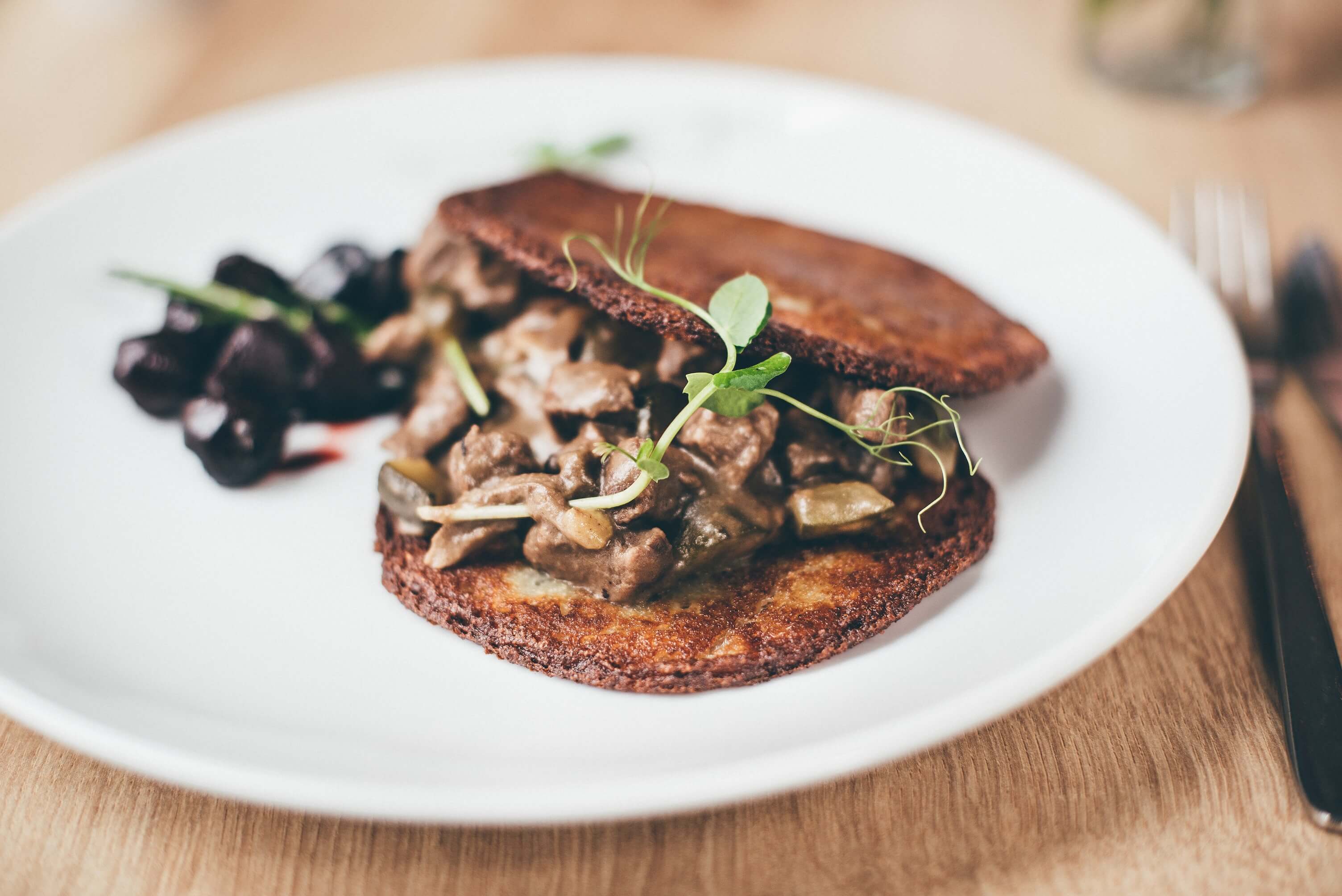
For the youngest there is a children’s menu with their favorite dishes, and for adults – original “Gvara” drinks. Hard-working people can have lunch here from Monday to Saturday. For those who would like to broaden their culinary knowledge and simply have fun, the chef runs cooking classes for those who want to develop their cooking skills.
To sum up: if you are looking for a restaurant in the heart of Gdańsk, visit lively Gvara. I can guarantee it will be delicious.
Contact:
Chlebnicka 48/51, 80-830 Gdańsk
phone. + 48 795 889 288
e-mail: restauracja@gvara.pl


